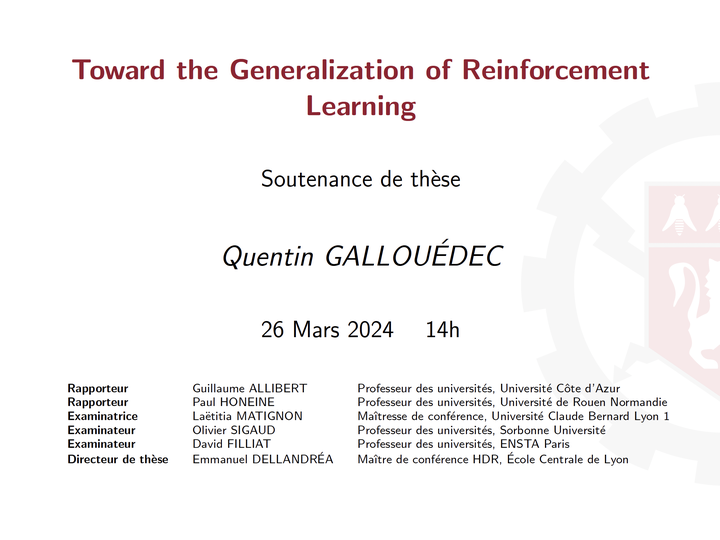
Abstract
Conventional Reinforcement Learning (RL) involves training a unimodal agent on a single, well-defined task, guided by a gradient-optimized reward signal. This framework does not allow us to envisage a learning agent adapted to real-world problems involving diverse modality streams, multiple tasks, often poorly defined, sometimes not defined at all. Hence, we advocate for transitioning towards a more general framework, aiming to create RL algorithms that more inherently versatile. To advance in this direction, we identify two primary areas of focus. The first aspect involves improving exploration, enabling the agent to learn from the environment with reduced dependence on the reward signal. We present Latent Go-Explore (LGE), an extension of the Go-Explore algorithm. While Go-Explore achieved impressive results, it was constrained by domain-specific knowledge. LGE overcomes these limitations, offering wider applicability within a general framework. In various tested environments, LGE consistently outperforms the baselines, showcasing its enhanced effectiveness and versatility. The second focus is to design a general-purpose agent that can operate in a variety of environments, thus involving a multimodal structure and even transcending the conventional sequential framework of RL. We introduce Jack of All Trades (JAT), a multimodal Transformer-based architecture uniquely tailored to sequential decision tasks. Using a single set of weights, JAT demonstrates robustness and versatility, competing with its unique baseline on several RL benchmarks and even showing promising performance on vision and textual tasks. We believe that these two contributions are a valuable step towards a more general approach to RL. In addition, we present other methodological and technical advances that are closely related to our core research question. The first is the introduction of a set of sparsely rewarded simulated robotic environments designed to provide the community with the necessary tools for learning under conditions of low supervision. Notably, three years after its introduction, this contribution has been widely adopted by the community and continues to receive active maintenance and support. On the other hand, we present Open RL Benchmark, our pioneering initiative to provide a comprehensive set of and fully tracked RL experiments, going beyond typical data to include all algorithm-specific and system metrics. This benchmark aims to improve research efficiency by providing out-of-the-box RL data and facilitating accurate reproducibility of experiments. With its community-driven approach, it has quickly become an important resource, documenting over 25,000 runs. These technical and methodological advances, along with the scientific contributions described above, are intended to promote a more general approach, we hope, represent a meaningful step toward the eventual development of a more versatile RL agent.